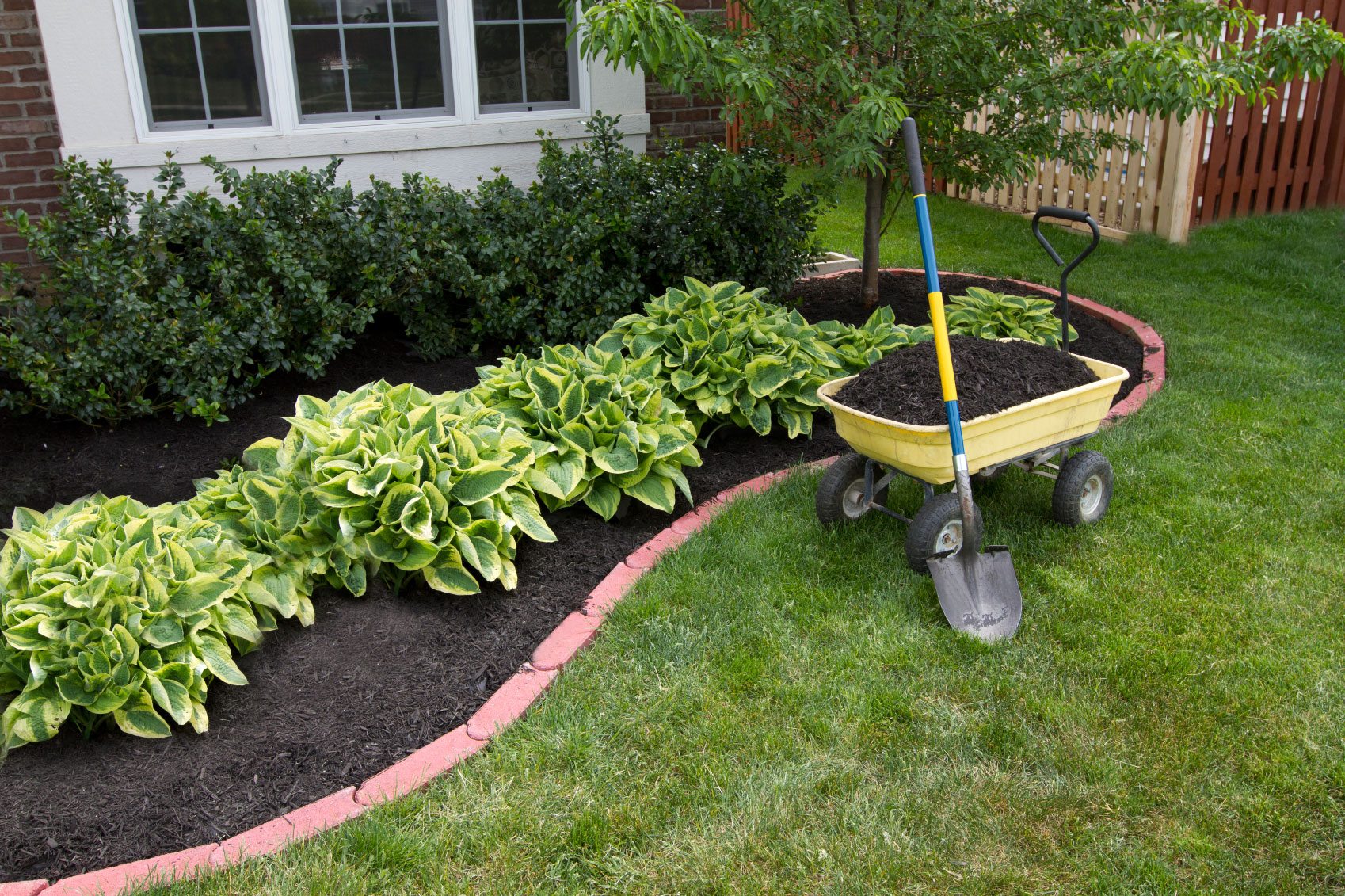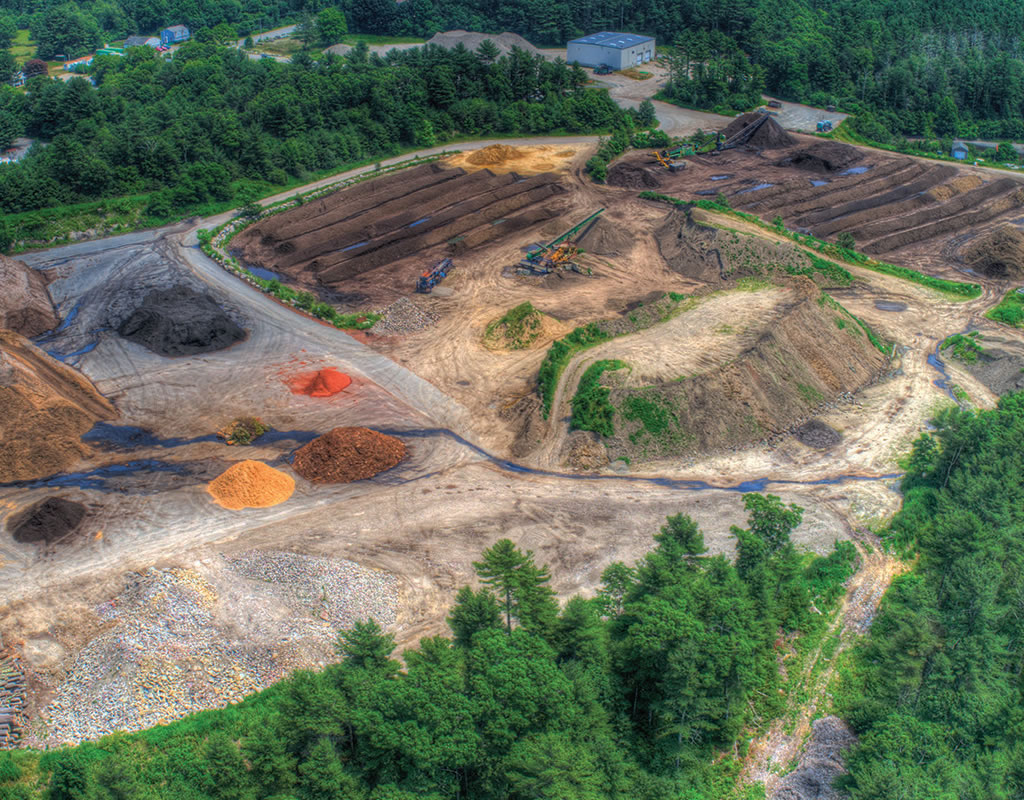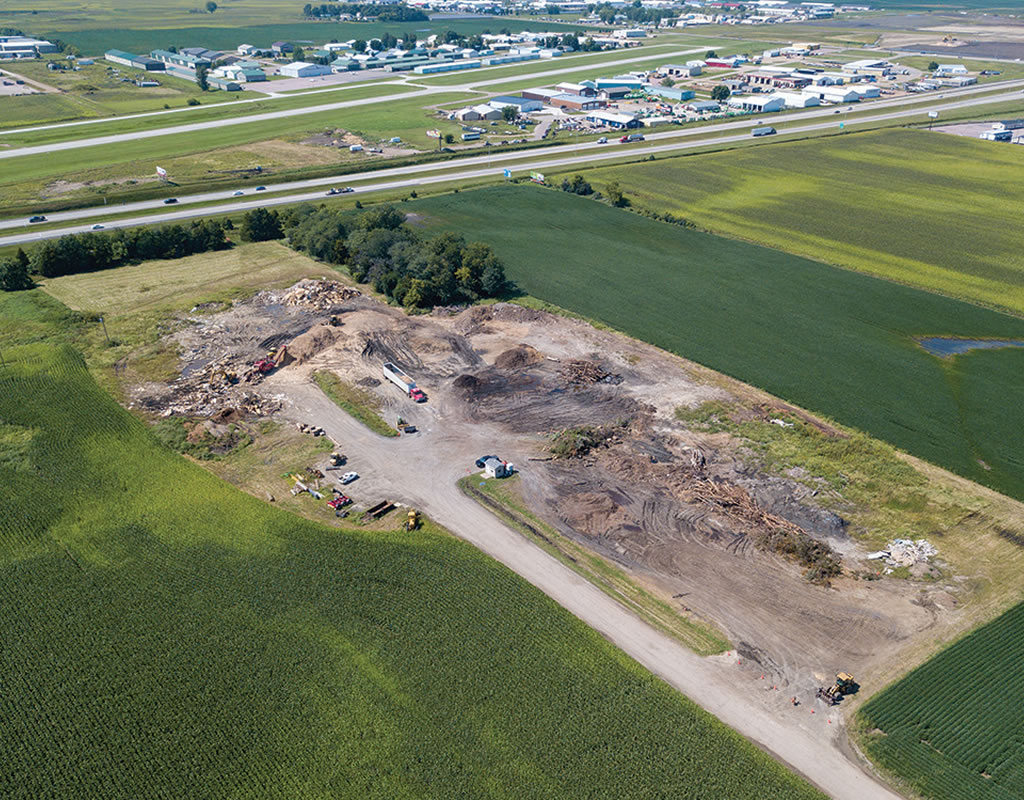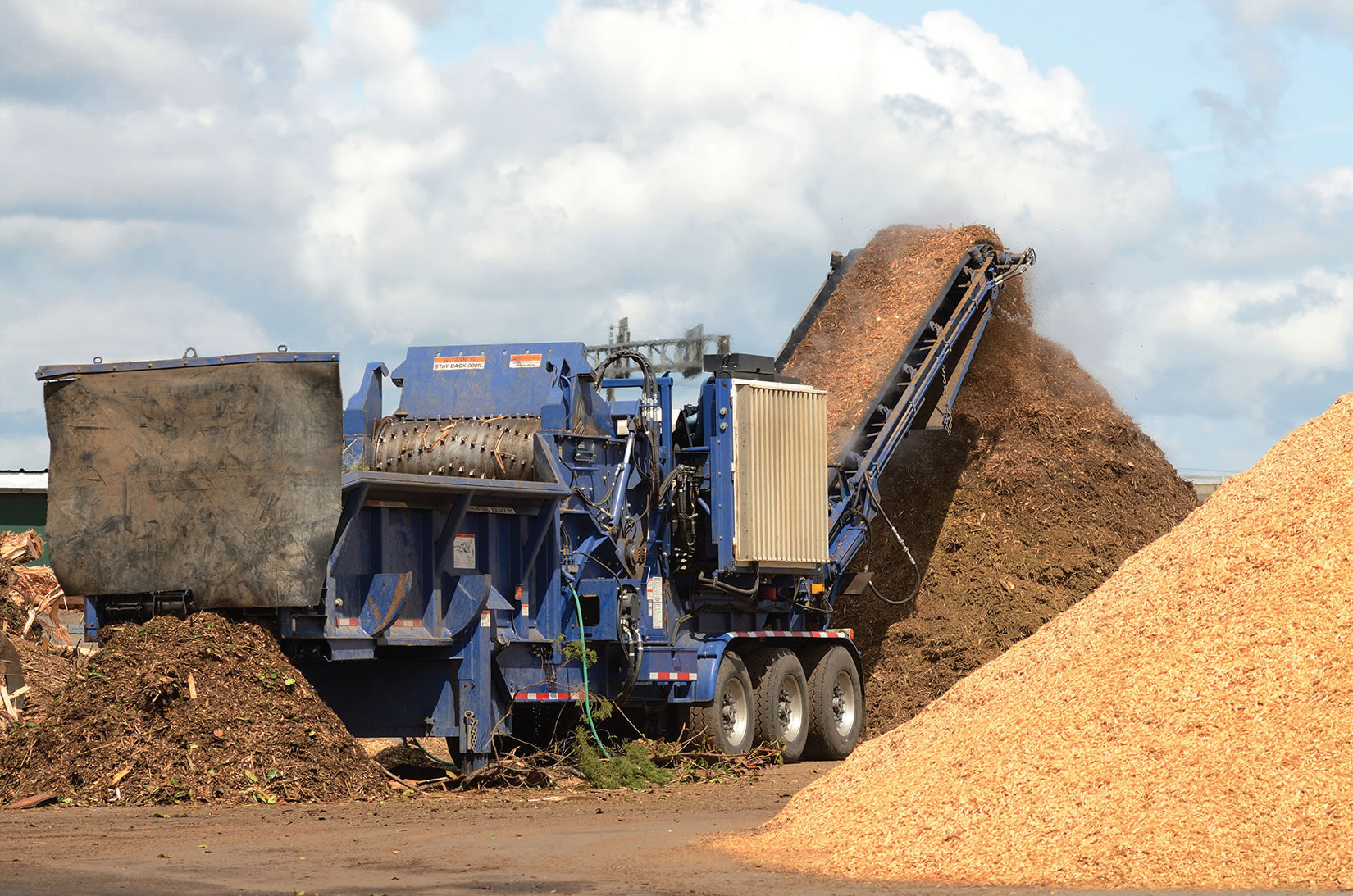By P.J. Heller
Jim Weber has come a long way since he was a 19-year-old running a lawn service business out of the garage at his parents’ home.
Today, some 38 years later, Weber is owner and president of Ohio Mulch, one of the largest mulch manufacturing companies in Ohio. The company, headquartered on a 56-acre site in Columbus, has 20 locations in Ohio, Georgia and Kentucky, some 350 employees at the height of the mulch season, and produces some 1 million cubic yards of mulch annually.
That’s a far cry from when the teen-age Weber had to drive around to numerous locations trying to find bags of mulch for his lawn service business.
“I was doing a lot of landscaping and one of the things I needed back then was mulch,” he recalls. “It was very difficult to get 40 years ago. Hardly anyone used mulch. The typical garden center back then didn’t exist. They probably went through one or two semi loads a year and not every store carried it. I would assume that the margins were significantly greater back then than they are today, but the volume was significantly less.”
Weber eventually got the names of some mulch manufacturers off the bottom of the bags and realized he could purchase semi-trailer loads to meet his needs.
“At the time, I knew I couldn’t have semi loads of mulch delivered to my parents’ home,” he says. “So, I had to find a place to store the product.”
He found a facility to rent where he could store equipment and the bagged mulch. He set up a little storefront where he could sell mulch and began promoting and advertising the business. He also quickly realized that he could sell some of the mulch to other landscapers and retailers.
“Back then, the home and garden section in newspapers came out on Sunday. The first day I opened for business was Sunday, April 1, 1984. That first day I did $1,500,” he remembers. “Wow. It was better than I thought.”
In his first year in business, he sold 99 semi-trailer loads of mulch. He ended up selling his lawn service business to concentrate on the mulch business.
By his third year in business, he says he was having difficulty getting enough product, including from local sawmills. Consistency was also an issue.
That prompted him to purchase a grinder “to make my own premium bulk product,” Weber says.
By 1990, however, the grinder couldn’t keep up with the volume of material. So Weber modified the grinder, replacing lightweight and trouble-prone parts with heavy-duty components to make it more reliable. The transformation was so dramatic that he had people knocking on his door to purchase the machines. That prompted him to buy old machines from farmers, modify them and then resell them. He eventually sold about 40 of the reconfigured Webermill Bark Grinders.
Weber says being able to change with the times has kept Ohio Mulch a competitive force. Among those changes: in the late ‘90s, the company opened a facility in South Georgia to produce cypress, pine and cedar mulch, which is then shipped to Ohio. It began offering colored mulch (black, brown, red and golden). And it led to Ohio Mulch planting an 1,100-acre tree plantation, using biosolids -- sewage sludge -- as a fertilizer to enhance the growth of the trees. Those trees lately have been used to make pallets for the company, with the scraps ground up for mulch.
The same is true for cypress trees and logs, with the wood being used to make lumber for fencing and the scraps being used for mulch.
‘We’re taking a 50-year-old tree and making a 50-year product out of it,” Weber explains. “We are taking the tree to make lumber and the byproduct is mulch.”
The company also takes in green waste at a majority of its facilities as a convenience to its customer base.
“They can drop off their yard waste and pick up mulch at the same time,” Weber says.
Those kinds of innovative ideas have allowed Ohio Mulch to continue to expand its client base throughout Ohio and its contiguous states. Today, its products can be found in its own retail outlets as well as in garden centers, nurseries, landscape companies and stores, including Home Depot, Ace Hardware, True Value, Lowes and Walmart.
Despite its success, the company, like many others, has faced challenges.
“Transportation is the biggest challenge,” Weber says, citing supply and demand for trucks, their hours of service and a shortage of drivers.
“Do you know any person whose child says, ‘I want to grow up to be a truck driver,’” he asks. “It’s not a sexy business to be in. Today’s generation of kids think they can have a full-time job just making TikTok videos.”
Labor is also an issue, especially coming out of the coronavirus pandemic when all types of businesses are scrambling to attract workers.
“I’ve never seen it as bad as I’ve seen it this year,” Weber says. “We used to place an ad in the paper and applicants who came through stuck around for a year or two or three. Today you’re lucky if you hire someone and they come back after lunch. It’s that bad.”
Even so, Weber says the “biggest asset” for the company is its employees. He recently had one employee retire at age 70, who had worked at Ohio Mulch for 31 years.
“I certainly encourage longevity,” Weber says, citing among other things the company’s excellent vacation benefit.
Ohio Mulch’s customer base is pretty evenly split between landscapers and homeowners. In 2020, during the pandemic, however, homeowners accounted for about 70 to 75 percent of sales.
“The governor would go on the news on TV and tell people to stay home and work in their garden” he said. “People took the advice literally.”
Bulk and bagged mulch products account for about 90 percent of the company’s sales. Soils make up the remaining 10 percent.
Looking ahead, Weber says the focus will likely be on expanding into areas utilizing smaller mulch manufacturing facilities, rather than having a large distant plant and having to ship product a long way.
And he is optimistic that the mulch market will continue to grow, not only for landscaping purposes but also for such things as erosion control.
“I do see it continuing to grow,” he says.
Related News
Subscribe Today
Every other month, Soil & Mulch Producer
News brings you important stories about:
• New Technology
• Products
• Industry News
• Research Studies
Soil & Mulch Producer News features articles and services relevant to your daily operations.











